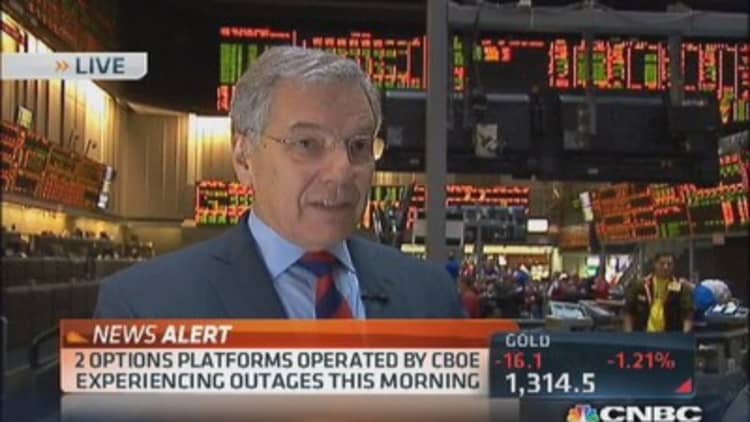Attention high frequency trader watchers: Virtu Financial (VIRT) has filed for an initial public offering (IPO), seeking to raise $100 million on terms not yet been specified.
Virtu is a well-known market maker in over 10,000 stocks, on both the NASDAQ and the New York Stock Exchange (NYSE), where they are a designated market maker on the floor. They aren't just well known in the U.S.: they operate in 30 countries.
A high-frequency trader going public? I've heard some argue that the market must be nearing a top for that particular industry.
That's not likely. First, they are not the first high-frequency firm to go public. Getco, an equally well-known high frequency firm, merged with Knight over a year ago.
Secondly, this firm is very respected on Wall Street. It's run by Vincent Viola, who started small at the New York Mercantile Exchange (NYMEX), then became its chairman. He now also owns the Florida Panthers, a National Hockey League team.
Silver Lake is a major investor, owning roughly 22 percent of the firm. Former NYSE chief Dick Grasso is also on the board.
Finally, this is unlikely to be a cash-out strategy for its founders. They are likely to use part of the $100 million they are raising once they go public to do mergers and acquisitions. In other words, the proceeds will be a currency, and this is a business that could see some significant mergers in the future.
Virtu has been around about half as long as another firm, Intercontinental Exchange, which now owns the NYSE. Keep an eye on them.
Elsewhere

1) Another day, another disappointment for retail earnings.
American Eagle reported same store sales down 7 percent, while Bon-Ton Stores saw earnings come in above expectations, but revenues fell well short. Comparable store sales were also down 7.3 percent, and its 2014 guidance of 40-70 cents was well below the 99 cents consensus estimate.
The news was also fairly bleak for Urban Outfitters, which also saw revenues well below expectations. The company said they are "very cautious" about the first quarter. There's clearly a problem with the main brand: Urban Outfitters saw same-store sales down 9 percent, but Anthropologie was up 10 percent, and Fre People up 20 percent. Separately, Dick's Sporting Goods reported decent earnings, but the outlook for the current quarter was below expectations.
2) Alternative energy stocks are jumping by double digits after FuelCell Energy reports in-line earnings and better-than-expected sales amid growing demand for clean-battery technology. That company's shares are up more than 100 percent this month, and they aren't the only ones: during the same period, Peers Plug Power is up 120 percent, Ballard Power Systems is up 85 percent and UQM Technologies is up 71 percent.
3) There is a rather confusing story in The Wall Street Journal this morning that Securities and Exchange Commission regulators are considering a pilot program that would allow trading in stocks in increments other than a penny. Why?
Because once you go beyond the 500 or so largest stocks, the remaining 3,000 or so companies have little or no trading volume or analyst coverage. , Allowing trading in increments other than a penny, the argument goes, would attract more trading and more analyst coverage.
The SEC has been considering a pilot for ages, but this time something will likely happen. There will be a pilot, perhaps as early as this year. It would likely entail trading in nickels for stocks with small market capitalization (likely below $500 million) and low volume. Would it attract more trading and analyst coverage? Perhaps, but there is considerable push-back on this.
Some don't want the public to pay more to trade stocks, even if it means more liquidity.
—By CNBC's Bob Pisani


